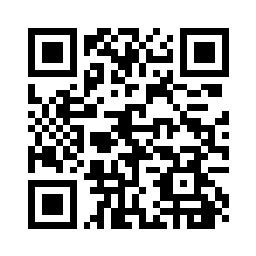Extractions
Tooth Extraction: Protecting Your Dental Health
If you’re looking into tooth extractions, you probably have questions and concerns about the procedure. At Family Dental Care, we understand that dental surgery can be a source of anxiety. Our skilled team puts your comfort first throughout the surgical procedure. We’re here to answer your questions, address your concerns, and guide you through each step.
Tooth Extraction: When And Why They’re Necessary
Those with badly damaged or decaying teeth are good candidates for extraction. We may be able to treat such issues with a crown or filling. Thus, surgical extractions should be a last resort.
Removing damaged teeth helps eliminate bacteria and improves oral health. Watch for signs like severe tooth pain, swollen gums, and cracked, broken, or crowded teeth.
You may need an emergency tooth extraction if you have unmanageable bleeding, facial swelling, or jaw pain. These problems can lead to infection and need quick treatment.
Schedule an appointment with us immediately for assistance if you experience any of these symptoms.
Professional Tooth Extraction: What to Expect
Start by scheduling a consultation with us. At your dental visit, we’ll examine your tooth to decide whether it needs to be extracted. In an emergency, we remove the tooth that day. Or, if it’s not an emergency, we’ll schedule a date to remove your tooth.
On the day of your dental procedure we numb the area of the extraction site and along the gum line. You will feel no pain, only pressure during the surgery. Before you leave, we’ll provide detailed aftercare instructions to ensure proper healing and comfort.
Ready to Schedule Your Extraction
We are here to help you at every step of the journey. This starts with the first consultation and continues through your successful recovery. Here at Family Dental Care we always do what’s best for you. We provide a balance of a calm atmosphere with modern technology to take care of you now and throughout the healing process.
Our dentists encourage you to be a part of the process by asking us questions. Your experience and comfort are our top priority.
If you are ready to take the next step, contact us today. We can help you schedule your tooth extraction and start your journey to better oral health.
Frequently Asked Questions About Tooth Extractions
Do Tooth Extractions Hurt?
No, tooth extractions do not hurt. We apply local anesthesia to numb the area around your tooth and jaw. You will feel pressure but no pain. If you do experience pain, don’t hesitate to speak up so that we can administer additional anesthesia.
How Long Does it Take to Extract a Tooth?
The entire procedure of pulling a tooth takes on average 20-40 minutes. This time can vary based on several factors. This includes how many teeth need removal and the condition of each one. Factors like decay, damage, or a broken tooth can also affect the time needed for extraction.
What Are My Options After a Tooth Extraction?
After we extract your tooth, you’ll have a hole in your mouth, which we can address in a variety of ways. In some cases, like when removing a molar in the back of your mouth, you may not need additional services. However, most patients prefer to replace any teeth we extract.
We offer several replacement options, including:
-
Dental Implants look and function like natural teeth, providing a long-lasting solution for missing teeth.
-
Dental bridges are non-invasive options, which anchor artificial teeth to healthy, neighboring teeth.
-
Partial or Full Dentures provide a removable and adjustable solution, restoring function and aesthetic appeal.
-
Dental Crowns protect your teeth and improve your smile. They provide long-lasting, lifelike restorations that help restore function.
Our trusted team of dentists can walk you through each option to help you find the best one that works for you.
What is the Aftercare Following a Tooth Extraction?
After the procedure, you may experience some discomfort. You can usually manage this with over-the-counter pain medications. However, we can prescribe stronger meds if needed.
We encourage you to not use straws and to avoid smoking, both of which can lead to dry sockets and risk of infection. Lastly, plan on eating soft foods, at least for the first 24 hours. By closely following our aftercare guidelines, you’ll minimize complications and expedite the healing process.
What Food Can I Eat After a Tooth Extraction?
Focus on consuming soft foods to avoid irritating the extraction area. Suitable options include yogurt, mashed potatoes, and smoothies. Make sure to drink enough water, but avoid using straws as a precaution to minimize blood clots.
Within a day or two, you can start introducing denser foods to your diet, like pasta, soft bread, and ground meats. Be mindful of whatever you eat and be sure to rinse your mouth after eating. Doing this prevents food particles from entering the hole where your tooth used to be, which helps prevent infection. Within a week or two, you should be able to return to your normal diet.


